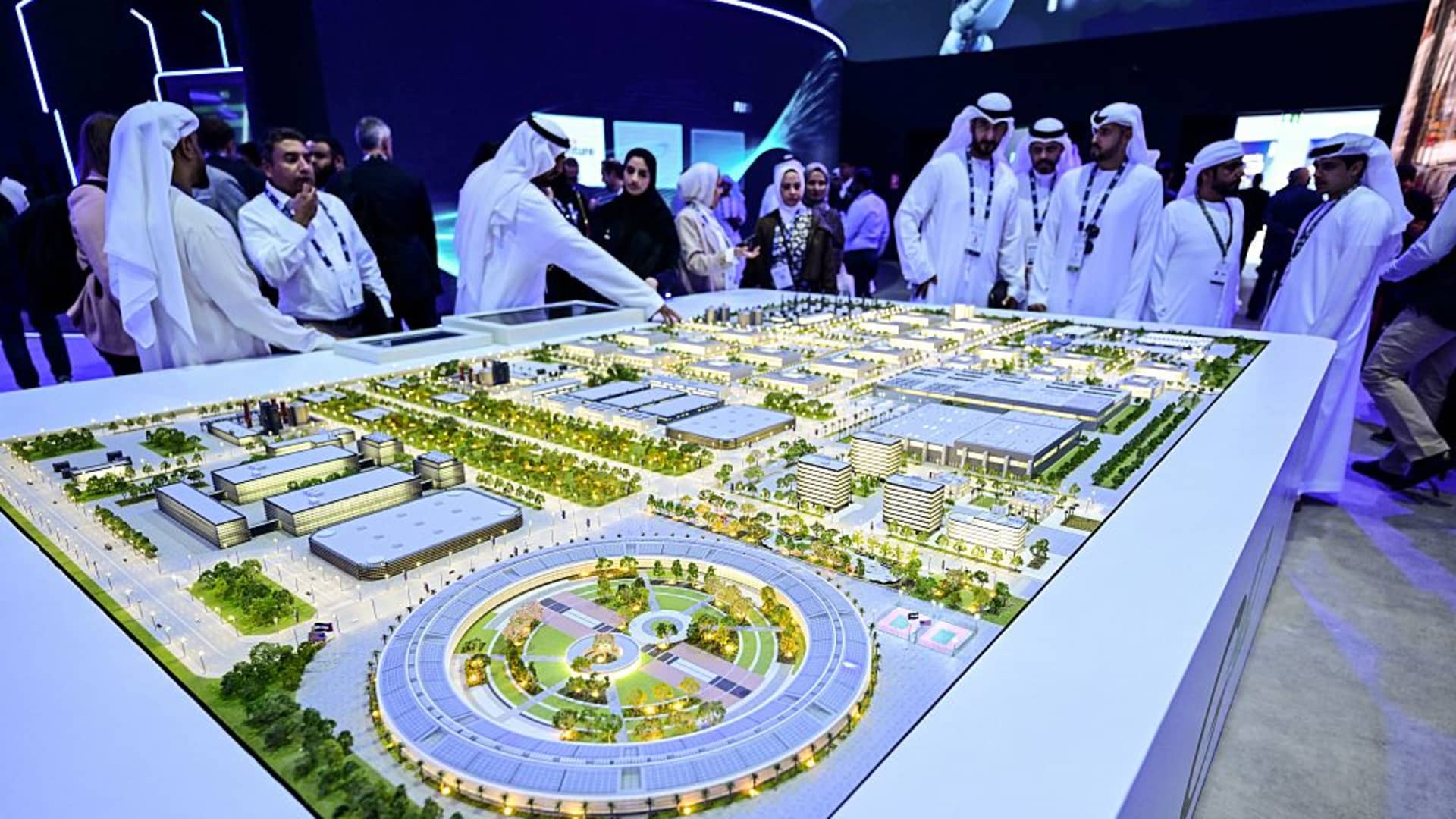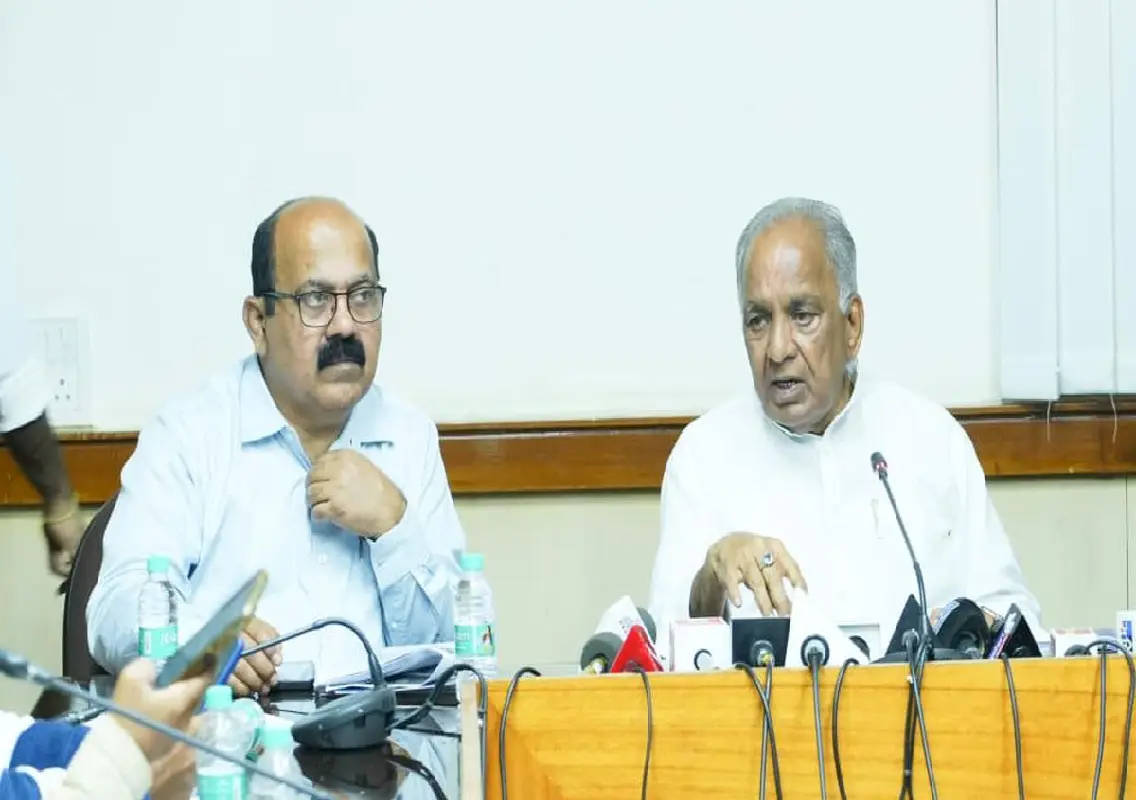Copyright CNBC

Giuseppe Cacace | Afp | Getty Images Fossil fuel leaders have welcomed a paradigm shift in the narrative regarding the energy transition. Speaking to CNBC on the sidelines of the Abu Dhabi International Petroleum Exhibition and Conference (ADIPEC), OPEC Secretary-General Haitham Al Ghais said there has been a "big shift" in the way industry leaders and policymakers are now talking about meeting rising global energy demand. "Three years ago, it was all about energy transition. Energy transition, climate change [and] get rid of fossil fuels. Today, it's about [how] we have to have a balanced approach," Al Ghais told CNBC's Dan Murphy in an exclusive interview. "So, it's a very different tone, which … I must say, sounds like music to my ears because this is what OPEC's been advocating for the last two, three, four years actually," Al Ghais said Tuesday. His comments were echoed by several industry players at the UAE's annual oil summit, with many championing the concept of "energy addition" to secure supply and accommodate new demands from sectors like artificial intelligence. watch now This energy addition refers to a push to develop new technologies, such as renewables like solar and wind, in parallel with existing fossil fuels. Energy transition, by contrast, typically refers to the transfer from one energy source to another. Climate scientists have repeatedly warned that a substantial reduction in fossil fuel use will be necessary to curb global heating, with the burning of coal, oil and gas identified as the chief driver of the climate crisis. UAE Minister of Industry and Advanced Technology Sultan al-Jaber said at the opening of ADIPEC on Monday that global electricity demand will continue to soar through to 2040, with power for data centers set to grow fourfold and 1.5 billion people expected to move from rural areas to cities. Bloomberg | Bloomberg | Getty Images The minister, who also serves as CEO of UAE oil giant ADNOC and led talks at COP28, said renewable energy technologies were on track to more than double globally by 2040, with liquified natural gas (LNG) demand poised to grow by 50% and oil set to stay above 100 million barrels per day. "This all adds up to something far more complex than a single path energy transition," al-Jaber said. "What we are talking about here is reinforcement — not replacement. In fact, what we're really talking about here is energy addition." 'A big rethink is going on' Mike Sommers, president and CEO of the American Petroleum Institute (API), an industry lobbying group, welcomed what he described as a "realistic conversation" about what will be required to power AI in the future. "I think we are transitioning from the energy transition. I think everyone recognizes that we're going to need a lot more energy going forward," Sommers told CNBC on Monday. "Our institute, the American Petroleum Institute, and almost every other independent analyst suggests that we're going to need more. Yes, it's AI. Yes, it's data centers. But it's also more air conditioning, more people plugging things into the grid," Sommers said. "We've known this for a long time. AI, I think, has put a punctuation point on that," he added. watch now Energy veteran and S&P Global vice chairman Dan Yergin echoed this sentiment, saying a big demand surge is in the offing as U.S. tech giants ramp up their AI plans. Asked whether he agreed with Sommers' view that the narrative is shifting away from the energy transition, Yergin said: "Yes, absolutely. That is what's happening. A big rethink is going on." "You can see the perspective of the tech companies, who didn't worry about energy. It was not a cost for them. Now, very much," he added. "It's thought that about half of U.S. GDP growth is coming from investment that the tech companies — now known as the hyperscalers — are putting into building data centers." What next for the energy transition? Ed Crooks, vice chair Americas at Wood Mackenzie, agreed that the energy transition had been a key focus during conversations at ADIPEC. "When you talk about the transition, it seemed to mean a lot of different things to a lot of different people. If, by the energy transition, you mean are we going to get to net zero by 2050 [and] are we going to be able to limit global warming to 1.5 degrees? That, I think it is fair to say, is dead, but I don't know that was ever really alive in the sense that it was always very, very ambitious," Crooks told CNBC on Tuesday. "If, by energy transition, you mean there is going to be rapid growth in renewables, there's going to be a shift to electric vehicles and we're going to be heading towards, in general, a lower carbon energy system then I think in that sense the energy transition is alive still." — CNBC's Emilia Hardie contributed to this report.



